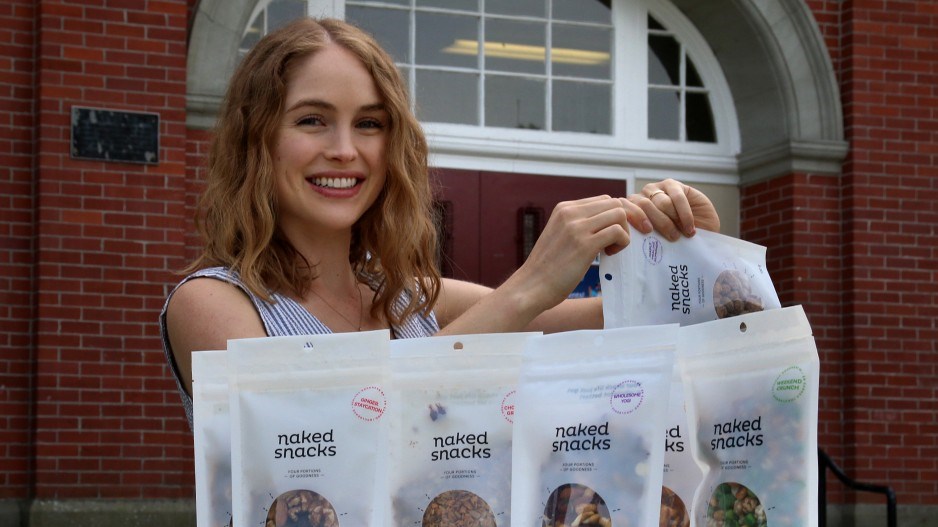This article was originally published in BIV Magazine: The Philanthropy Issue, which can be read here.
Long line-ups outside of food banks and stories of families driving hours to secure food became early symbols of the economic and social devastation caused by COVID-19.
In many ways, the pandemic exacerbated existing social inequities and issues: there were nearly one million children and youth already waiting to take part in the Breakfast Club of Canada’s meal program before the coronavirus came to Canada.
“They do not have access to a healthy meal,” explains Benjamin Neumer, a Vancouver-based senior advisor for corporate partnerships and major gifts with the Breakfast Club of Canada.
Some 270,000 students are fed by the organization’s school-based program every day, from coast to coast to coast. It had to adapt quickly to schools shutting down in March and April due to COVID-19, and did so by injecting cash and in-kind donations into communities to feed thousands of families.
“We picked up many new partners through this. It was a little bit paradoxical because you would think with COVID there would be more constraints,” says Neumer. “We received thousands and thousands of dollars from the corporate community.”
Breakfast Club of Canada is heavily reliant on corporate giving, as are many charities and non-profits in Canada. On average, Americans donate more than 14 times as much as businesses, while Canadians donate slightly more than three times as frequently as companies, according Imagine Canada. Some 91% of the Breakfast Club of Canada’s funding comes from businesses.
“It’s actually astounding how many kids go to school on an empty stomach,” says Ryley Humphry, vice-president of sales and co-owner of Naked Snacks, which financially supports Breakfast Club of Canada. For every box of snacks the company ships, Naked Snacks contributes the financial equivalent of a snack to a child in need through its partner.
When BIV Magazine spoke with Humphry in August, the company – which was founded by her husband Neil Thomson in 2017 – had donated more than 4,600 snacks in 2020 alone.
“We’re still a very small business. But giving back is incredibly important to us,” says Humphry, who works as a full-time fundraiser for the University of British Columbia’s Sauder School of Business.
“It’s a really cool part of my role at Naked Snacks, where I then get to contribute to the strategy for philanthropy and community partnerships and giving back.”
Pre-pandemic, Canadian corporate philanthropy was on the rise.
Imagine Canada reported last November that more than four times as many Canadian companies were planning to increase their community investment budgets as those who planned to decrease them. Many leading companies were also encouraging their employees to donate their time and money to various causes.
“Gone are the days when businesses are making one charity partnership and that’s it for the next five-to-10 years,” says Lori Muñoz Malcolm, community strategist and founder of HeartPress, a “broker of good” that helps businesses connect with non-profits, and vice versa.
Not only is corporate philanthropy evolving – consumers expect more from the businesses they frequent.
“I think we’re seeing that even more during COVID, where customers are looking for their company to be stepping up.”
The list of B.C. businesses that redirected resources to manufacture personal protective equipment or hand sanitizers, and to help people in need, is long. The Pie Hole, founded by Jenell Parsons, donated a pie to a seniors’ home in the Lower Mainland for every pie purchased. Taste of the Okanagan Specialty Foods Ltd. is donating part proceeds from the sale of a special wine jelly to Mamas for Mamas, a poverty relief agency. Some companies are even being established to help meet community needs.
Mobile bartending business Lipstick Liqueur, which is getting up and running during the pandemic, intends to contribute part of its revenues directly to families fighting breast cancer.
“I was in high school, my mom got diagnosed with breast cancer. And what I remember distinctly is how difficult the financial strain was on her,” says Sabrina Haloulakos, the founder and CEO of Lipstick Liqueur, who has a career in investment banking.
“I kind of like to follow the dollar when I donate,” she says. “How cool would it be to give directly to somebody and – it may not be thousands of dollars – but at least they know the community’s supporting them.”
This article was originally published in BIV Magazine: The Philanthropy Issue, which can be read here.




